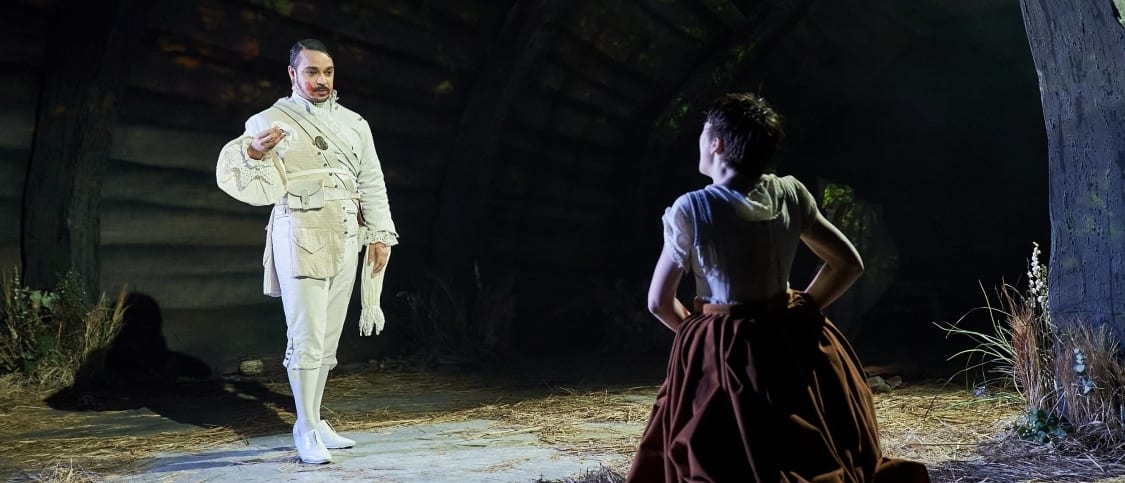Faustus: That Damned Woman is brought to the stage with energetic spirit by Headlong, in a production directed by Caroline Byrne. By making Faustus a woman, Bush’s rewriting raises angry questions about women’s access to knowledge and power, and addresses our long-lasting difficulties with portraying women driven by ambition alone. The play locates the heroine in a lineage of women going from witches to Elizabeth Garrett, Britain’s first woman to practice medicine, to Marie Curie. The move, while admittedly performed with mixed success, evocatively recasts Faustus’s choice as a pragmatic one, which she makes at the risk of becoming a damned – or nasty – woman.
It is easy to see why Johanna Faustus, the heroine of Chris Bush’s abrasive new account of the Faust myth, would consider the Devil himself “a catch” in seventeenth century London. Those women who are not decimated by the plague, childbirth, or false accusations of witchcraft live brutish lives of toiling under a narrow-minded patriarchal rule that condemns them to become wives or servants. Faced with those options, Johanna decides that she will have none of it, and chooses to sell her soul to Lucifer instead in a bid for self-determination and power. That is, of course, until her infernal creditor comes to take his due. Over the course of the play, Johanna (Jodie McNee) is accompanied by Mephistopheles (Danny Lee Wynter), who is forced into becoming her servant by Lucifer (Barnaby Power). As she tries to use her power for good, however, Johanna quickly finds herself having to negotiate her assistant’s malignant designs, and to think about the price of her own ambitions.
McNee brings a haunted dimension to Johanna, and is perhaps most convincing when she portrays the heroine’s growing ennui. Her voluntarily grating rendition of Johanna puts her in a tense love-hate relationship with the audience, mimicking the heroine’s ambiguous moral position, in contrast with Mephistopheles’s oily manner. Around her, other protagonists come and go and are more lightly sketched out. Johanna’s encounters with famous historical figures were sometimes frustratingly short, and the script was at its most effective when it became explicitly about discussing Johanna’s experience of a form of historical injustice: as a woman born in the 17th century, she would have had no chance at experiencing any form of social advancement. Progress of any kind, we are reminded, is a slow, unfair process, abandoning many in its wake. By following Johanna’s transformation from aspiring doctor to data scientist in the present day, the play also pointed to the role of knowledge and power, and its changing forms in our societies.
The set consists of a series of wooden beams shaped like the inside of a shell, or a spiderweb, at the back of which spectres are free to roam. It is used as a screen which sometimes displays images such as that of the names of the victims of Johanna’s revenge. Its transformations felt occasionally unwieldy, as did Johanna’s changes of costume which reflected her jump from one era to the next thanks to the immortality granted by Lucifer. Despite these and some other hurdles (actress Katherine Carlton was unable to perform on the night I attended, and was neatly replaced by Alice Lamb), this new creation was propelled by some serious, ambitious questions, and by a literary quality particularly enjoyable in new writing for the theatre. Johanna’s grandiloquent ravings at the devil in particular were extremely enjoyable, as were her battles of wits with her infernal sidekicks. All in all, Faustus: That Damned Woman made for a thought-provoking night.

